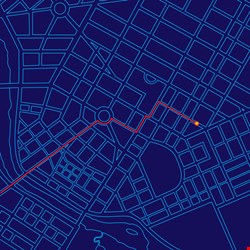
In January, the Supreme Court ruled that law enforcement’s attaching GPS tracking devices to a vehicle without a warrant was an unlawful search and seizure.
The Ninth Circuit Court of Appeals ruled this week that data from a GPS device attached to the vehicle of Juan Pineda-Moreno without a warrant could still be used at trial because settled law did not prohibit the practice at the time.
“When the agents attached and used the mobile tracking devices that yielded the critical evidence, they did so in objectively reasonable reliance on then-binding precedent,” wrote Judge Diarmuid O’Scannlain in the opinion.
Catherine Crump, staff attorney for the American Civil Liberties Union (ACLU), stressed that the court’s decision was narrow in scope.
“It’s important to note what the court did not do. It did not rule on whether, going forward, the government needs a warrant based on probable cause to attach a GPS device to a car. Given the privacy-invasive nature of location tracking, a warrant is the constitutionally-required minimum. This decision also does not affect defendants in other parts of the country whose cases are outside the Ninth Circuit’s jurisdiction. Nevertheless, it’s crucial that Americans’ privacy is maintained in the face of ever more powerful government surveillance tools”, Crump wrote.